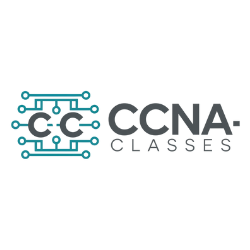Are you ready to take your networking career to the next level? The Cisco Certified Network Associate (CCNA) exam is your ticket to success in the world of networking. But passing the CCNA exam on your first try can be a daunting task. Don’t worry, I’ve got you covered! In this article, I’ll share my top tips and strategies to help you pass the CCNA exam on your first attempt. With the right preparation and a solid study plan, you’ll be well on your way to becoming a certified networking professional. So, let’s dive in and get you ready to ace the CCNA exam!
When it comes to the CCNA exam, preparation is key. As someone who has successfully passed the CCNA exam on my first try, I know what it takes to succeed. In this article, I’ll walk you through the essential steps you need to take to ensure you’re fully prepared for the exam. From understanding the exam objectives to creating a study schedule that works for you, I’ll share my proven strategies to help you maximize your chances of passing the CCNA exam on your first attempt. So, let’s get started and set you up for success!
Understanding the CCNA Exam
Understanding the CCNA Exam
When it comes to passing the CCNA exam on your first try, it’s important to have a solid understanding of what the exam entails. This will not only help you prepare effectively but also give you the confidence to tackle any question that comes your way. In this section, I will walk you through the key aspects of the CCNA exam that you need to be familiar with.
- Exam format and structure: The CCNA exam consists of multiple-choice questions, drag and drop questions, simulations, and simlet questions. Understanding the structure of the exam will enable you to allocate your time wisely during the test.
- Exam topics: The CCNA exam covers a wide range of topics, including network fundamentals, LAN switching technologies, routing technologies, WAN technologies, infrastructure services, security, and management. It’s crucial to have a solid understanding of these topics to ensure success on the exam.
- Exam objectives: Familiarize yourself with the exam objectives provided by Cisco. These objectives outline the specific knowledge and skills that you need to demonstrate in order to pass the exam. Make sure you cover all the objectives in your study plan.
- Exam duration: The CCNA exam has a time limit of 90 minutes. This means you need to answer the questions efficiently and pace yourself accordingly. Practice time management during your preparation to ensure you are comfortable with the exam’s time constraints.
- Passing score: To pass the CCNA exam, you need to achieve a minimum score determined by Cisco. It’s essential to have a clear understanding of the passing score so that you can set clear goals and track your progress during your preparation.
By understanding these key aspects of the CCNA exam, you’ll be better equipped to approach the exam confidently. In the next section, I’ll guide you on creating a study schedule that will help you effectively cover all the exam topics and objectives.
Setting Your Study Goals
When preparing for the CCNA exam, it’s crucial to set clear study goals that will help you stay focused and motivated along the way. Here are some steps you can take to effectively set your study goals:
- Assess your current knowledge: Start by evaluating your existing knowledge and skills in the areas covered by the CCNA exam. This will give you a baseline to work from and help you identify the areas where you need to focus your efforts.
- Understand the exam objectives: Familiarize yourself with the exam objectives outlined by Cisco. This will give you a clear understanding of what topics and concepts you need to master in order to pass the exam. Make a list of these objectives and break them down into smaller, manageable study goals.
- Set a study schedule: Dedicate specific time slots each day or week for studying. Establishing a regular study routine will help you stay disciplined and ensure that you cover all the necessary material before the exam. Remember to factor in breaks and rest days to avoid burnout.
- Create a study plan: Once you have your study goals and schedule in place, create a detailed study plan. Break down each objective into smaller tasks and allocate time for reviewing, practicing, and taking mock exams. Having a structured plan will make your study sessions more efficient and effective.
- Track your progress: Keep track of your progress as you study. This can be done by using a study journal or an online tracking tool. Regularly assess your understanding of the topics, identify areas where you need further improvement, and adjust your study goals and plan accordingly.
By setting clear study goals, you’ll be able to approach your CCNA exam preparation in a focused and organized manner. Remember to be realistic with your goals and stay committed to your study plan. With determination and a well-structured approach, you’ll be on your way to passing the CCNA exam on your first try.
Keep reading to learn more about other key aspects of the exam that will help you succeed.
Creating a Study Plan
When it comes to preparing for the CCNA exam, having a well-defined study plan is absolutely crucial. This is the roadmap that will guide you through the process, ensuring that you cover all the necessary topics and have enough time to review and practice. Here are a few steps to help you create an effective study plan:
- Assess your current knowledge: Before you start creating your study plan, it’s important to know where you stand. Take some time to evaluate your existing knowledge and identify any areas that need improvement. This will help you allocate your study time more effectively and focus on the areas that need the most attention.
- Understand exam objectives: Familiarize yourself with the exam objectives and understand what topics and skills you will be tested on. This will give you a clear idea of what you need to study and cover in your plan. Don’t forget to refer to the official CCNA exam blueprint provided by Cisco for detailed information.
- Set a study schedule: Determine how many hours per day or week you can dedicate to studying for the CCNA exam. Be realistic and consider your other commitments and responsibilities. It’s better to have a consistent study schedule, even if it’s for a shorter duration, than to cram everything at the last minute.
- Break it down: Break down the exam objectives into smaller, manageable chunks. This will make it easier to tackle the material and prevent overwhelming yourself. Assign specific topics or chapters to each study session and set clear goals for what you want to accomplish during that time.
- Track your progress: Regularly monitor your progress to ensure that you’re staying on track. Keep a record of the topics you’ve covered, the resources you’ve used, and any practice exams or quizzes you’ve taken. This will not only help you see how far you’ve come but also identify any areas where you may need additional focus.
By following these steps, you’ll be able to create a study plan that is tailored to your needs and sets you up for success. Remember, consistency and dedication are key. Stick to your plan, stay motivated, and you’ll increase your chances of passing the CCNA exam on your first try.
- Assess your current knowledge before creating a study plan.
- Understand the exam objectives and what topics will be covered.
- Set a realistic study schedule that fits your other commitments.
- Break down the material into manageable chunks for
Gathering the Right Resources
When preparing for the CCNA exam, it’s essential to have the right resources at your disposal. These resources will help you understand the concepts, practice your skills, and build confidence.
Here are some steps I took to gather the right resources for my CCNA exam preparation:
- Research: I started by researching reputable study materials and resources. This included books, online courses, practice tests, and video tutorials. It’s important to rely on trusted sources that cover the exam objectives and provide comprehensive content.
- Official Cisco Documentation: One invaluable resource is the official documentation provided by Cisco. It’s a treasure trove of information that covers all the exam topics in detail. I made sure to read through the relevant Cisco documentation to gain a deeper understanding of the concepts.
- Study Guides and Books: I invested in study guides and books specifically designed for the CCNA exam. These resources provide structured learning paths and comprehensive explanations of the exam topics. They helped me grasp complex concepts and provided real-world examples to solidify my understanding.
- Online Courses: Online courses are a fantastic way to learn at your own pace. I enrolled in reputable platforms that offer CCNA-specific courses. These courses typically include video lectures, quizzes, and hands-on labs, allowing me to practice my skills in a simulated networking environment.
- Practice Tests: Taking practice tests is crucial in preparing for the exam. They not only gauge your knowledge but also familiarize you with the format and style of the questions. I made use of practice tests from reliable sources to assess my understanding and identify areas I needed to focus on.
Remember, the CCNA exam is comprehensive, and having a variety of resources at your disposal will help you approach the exam with confidence. Gathering the right resources will ensure that you have a well-rounded understanding of the exam topics and increase your chances of passing on your first try.
By following these steps and gathering the appropriate resources, you’ll be equipped with the knowledge and confidence needed to pass the CCNA exam. However, it’s important to remember that the success of your preparation also depends on consistent study and practice.
Mastering the Exam Objectives
To have a successful attempt at the CCNA exam, it’s crucial to fully understand and master the exam objectives. Here are a few pointers that can help you achieve this:
1. Study the Exam Blueprint
Start by reviewing the official CCNA exam blueprint provided by Cisco. This blueprint outlines the exam topics and subtopics that you need to study. Understanding this blueprint will give you a clear roadmap of what you need to focus on during your preparation.
2. Break Down the Objectives
Once you have the exam blueprint, break down the objectives into smaller, manageable sections. This will allow you to tackle them one at a time, making your study sessions more focused and efficient. It’s also helpful to create a study schedule and allocate dedicated time for each objective.
3. Utilize Multiple Study Resources
To gain a comprehensive understanding of the exam objectives, it’s important to use multiple study resources. Seek out reputable study materials, such as official Cisco documentation and study guides. These resources provide in-depth explanations and examples that can help you grasp the concepts better.
4. Practice, Practice, Practice
Reinforce your understanding of the exam objectives through hands-on practice. Utilize online platforms and practice tests to simulate the exam environment. This will not only familiarize you with the exam format but also help identify any areas where you need further improvement.
5. Join Study Groups or Forums
Engaging with others who are also preparing for the CCNA exam can be beneficial. Join study groups or participate in online forums where you can discuss exam objectives, share study materials, and ask questions. Collaborating with others can provide different perspectives and insights that can enhance your understanding.
Remember, consistent and focused effort is key to mastering the exam objectives. By breaking down the objectives, utilizing multiple study resources, practicing regularly, and engaging with fellow learners, you’ll be well-equipped to tackle the CCNA exam with confidence.
Practicing with Practice Exams
When it comes to preparing for the CCNA exam, one of the most effective ways to gauge your knowledge and identify areas where you need improvement is by taking practice exams. The use of practice exams can be a valuable tool in your preparation journey, helping you build confidence and familiarity with the exam format and content. Here are a few reasons why practicing with practice exams is crucial:
- Simulates the Exam Environment: Practice exams are designed to mimic the real CCNA exam, providing you with an authentic testing experience. By taking these exams, you can familiarize yourself with the exam interface, time constraints, and the overall structure. This simulation is valuable as it prepares you mentally for the actual exam and minimizes anxiety.
- Identifies Knowledge Gaps: Practice exams enable you to identify areas where you may be weak or lacking in knowledge. By reviewing your performance and analyzing the questions you answered incorrectly, you can pinpoint specific topics that require more attention. This helps you develop a targeted study plan and spend more time on areas that need improvement.
- Improves Time Management: Time management is crucial when it comes to the CCNA exam. Practice exams help you practice pacing yourself and answering questions within the allocated time. By repeatedly taking practice exams, you can learn to manage your time effectively, ensuring that you complete all questions within the given timeframe.
- Builds Confidence: The more practice exams you take and perform well on, the more confidence you will gain. Confidence plays a significant role in exam success, as it allows you to approach the real exam with a positive mindset. Additionally, practicing exams and seeing your progress over time can boost your self-assurance in your knowledge and abilities.
To make the most of your practice exams, consider the following tips:
- Set aside dedicated time for practice exams in your study schedule.
- Use a variety of practice exams from different sources to expose yourself to different types of questions.
- Review your performance after each practice exam to identify areas for improvement.
- Create a study plan based on the topics you struggled with during practice exams.
- Keep track of your progress and see how you improve over time.
Remember, practice exams are just one piece of the puzzle. Combine them with other study resources and strategies to ensure a well-rounded preparation for the CCNA exam.
Reviewing and Redoing Weak Areas
When preparing for the CCNA exam, it’s crucial to review and redo weak areas to ensure comprehensive understanding of the material. Here are some effective strategies I recommend:
- Identify Weak Areas: After taking practice exams and reviewing your performance, pinpoint the topics or concepts in which you struggled the most. This will help you prioritize your study efforts and allocate more time to these areas.
- Go Deeper: Once you’ve identified your weak areas, dive deeper into the content to gain a better understanding. Use study guides, online resources, and video tutorials to fill in the gaps in your knowledge. Remember, a solid foundation in every topic is essential for success in the CCNA exam.
- Practice, Practice, Practice: After studying the material, it’s essential to reinforce your understanding through practice. Utilize different sets of practice questions specifically tailored to the topics you find challenging. This will reinforce your knowledge, improve your problem-solving skills, and boost your confidence.
- Review Your Performance: After each practice session, carefully review your performance. Pay attention to the questions you answered incorrectly and analyze where you went wrong. This review process will help you identify recurring mistakes and areas that still need improvement.
- Repeat the Process: Keep reviewing and practicing the topics you find difficult until you see significant improvement. Repeat the cycle of reviewing weak areas, studying the material, and practicing with different sets of questions. Each repetition will strengthen your understanding and increase your chances of passing the CCNA exam on your first attempt.
Remember, passing the CCNA exam requires a thorough understanding of all the exam objectives. By reviewing and redoing your weak areas, you’ll be better prepared to tackle the exam and achieve success.
Let’s move on to the next section – “Creating a Study Plan”.
Simulating the Exam Environment
To increase my chances of passing the CCNA exam on my first try, I believe it’s crucial to simulate the exam environment during my study process. By creating a realistic exam environment, I can train myself to be familiar with the format, time constraints, and the pressure that comes with taking the actual exam. Here’s how I do it:
- Set up a distraction-free zone: I designate a quiet and comfortable space where I can focus solely on studying. I ensure that I have all the necessary resources, such as my study materials, practice exams, and a reliable internet connection.
- Time myself: To mimic the exam conditions, I use a timer to set strict time limits for each practice session. This helps me gauge my pace and ensures that I can complete the exam within the given timeframe.
- Practice with real exam questions: I seek out reputable sources that provide practice exams with questions that closely resemble those on the CCNA exam. This allows me to become familiar with the types of questions I may encounter and helps me develop effective strategies for answering them.
- Utilize online exam simulators: Many online platforms offer realistic exam simulations that replicate the actual CCNA exam. These simulators provide an authentic testing experience, complete with timers and a similar interface. I make use of these resources to get acquainted with the exam environment and to gain confidence in my abilities.
- Review and analyze my performance: After each practice exam, I thoroughly review my performance, paying attention to the questions I struggled with. I identify my weaknesses and make a note of the areas that require further study and improvement. This process helps me focus my efforts on strengthening those areas before the actual exam.
By simulating the exam environment, not only do I become more comfortable with the exam format, but I also become better prepared to handle the time pressure and stress that comes with it. This approach boosts my confidence and gives me a competitive edge, increasing my chances of passing the CCNA exam on my first attempt.
Managing Exam Day
On the day of the CCNA exam, there are a few important things I always keep in mind to ensure a smooth and successful experience. Here are some tips I’ve learned over the years:
1. Get organized: Before heading out to the exam center, I make sure to gather all the necessary documents, such as identification, admission ticket, and any other required paperwork. Being organized helps me feel more confident and reduces stress on the day of the exam.
2. Arrive early: It’s essential to arrive at the exam center at least 30 minutes before the scheduled time. This gives me enough time to check-in, complete any necessary paperwork, and settle down before the exam begins. Arriving early also allows me to minimize any potential disruptions or unforeseen delays.
3. Stay calm and focused: Feeling nervous is normal, but it’s crucial to stay calm and focused during the exam. I take a deep breath, remind myself of my preparation, and approach each question with a clear mind. I find that a calm and focused mindset helps me make better decisions and recall information more effectively.
4. Read the questions carefully: One common mistake is rushing through the questions without fully understanding them. To avoid this, I take a few extra seconds to read each question carefully, ensuring that I comprehend what is being asked. This helps me avoid unnecessary mistakes and boosts my chances of selecting the correct answer.
5. Manage time wisely: Time management is essential during the CCNA exam. I always glance at the clock periodically to ensure I’m progressing at a reasonable pace. If I encounter a challenging question that is consuming too much time, I flag it and move on to the next one. This ensures that I have enough time to answer all the questions and review my answers later if time permits.
6. Review your answers: If time allows, I dedicate the last few minutes of the exam to reviewing my answers. I double-check for any mistakes or omissions and make any necessary adjustments. However, it’s important not to second-guess myself too much, as this can lead to unnecessary confusion and errors.
By following these strategies, I’ve been able to effectively manage exam day stress and increase my chances of passing the CCNA exam on the first try. The next section will delve into the importance of maintaining a positive mindset throughout the exam preparation process.
Conclusion
In order to pass the CCNA exam on the first try, it is crucial to have a solid understanding of all the exam objectives. This requires identifying and addressing weak areas through thorough review and practice. By going deeper into the content, practicing regularly, and reviewing performance, significant improvement can be achieved.
Simulating the exam environment is another key step in preparing for success. Creating a distraction-free zone, timing oneself, and practicing with real exam questions are effective ways to become more comfortable with the exam format. Utilizing online exam simulators and analyzing performance help in identifying areas that need further improvement.
On exam day, it is important to stay organized, arrive early, and remain calm and focused. Carefully reading the questions, managing time wisely, and reviewing answers can greatly increase the chances of passing the CCNA exam.
By following these strategies, you can increase your chances of passing the CCNA exam on your first attempt. Remember to stay focused, practice diligently, and believe in your abilities. Good luck on your journey to becoming CCNA certified!





